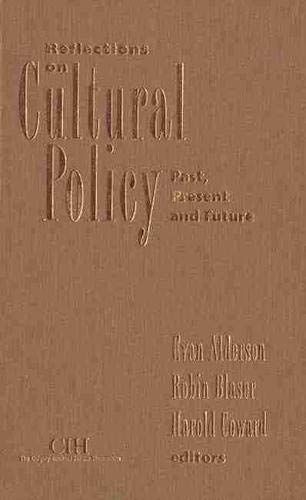
Reflections on Cultural Policy Past, Present and Future
Looks at the roles various world views have played in generating cultural policies at various times in Western history. Evan Alderson’s introduction places the work within its social, political and historical framework. Robin Blaser addresses the problem of how we can begin to locate a responsible cultural position at the present time. The volume’s historical progression begins with John Humphrey looking at the relation of arts and state in Imperial Rome. Haijo Westra focusses on the relation of language and culture in the medieval world. Jonathan Bordo examines the emergence of the individually framed picture in the Renaissance. Steven Cole examines the artistic autonomy of English Romanticism. Hazard Adams outlines a conception of cultural policy through William Blake. Cultural policy is brought closer to the Canadian context with Gordon Fearn’s discussion of communications policy in Canada. Anthony Welch takes up the process of re-comprehending culture within the revolution of communications by examining revolutionary and pre-revolutionary Iran. The two final essays take up the challenge of positing the hope of the post-modern. Barry Cooper begins his examination of the relevant part of post-modernism in the sixth century A.D. Robert Kroetsch sees only a longing for order that must be abandoned so that we may measure the depth of our uncertainties and learn to converse across them. Robin Blaser reminds us in his “Afterthoughts” that much of our current unease stems, not from too many differences, but from too few. This volume speaks in a single voice both to those interested in the pragmatics of current cultural policy and to those whose primary allegiance is to the life of the imagination. It is not just a scholarly exercise, but also a call for action — to a more comprehensive and informed engagement with our present cultural condition.